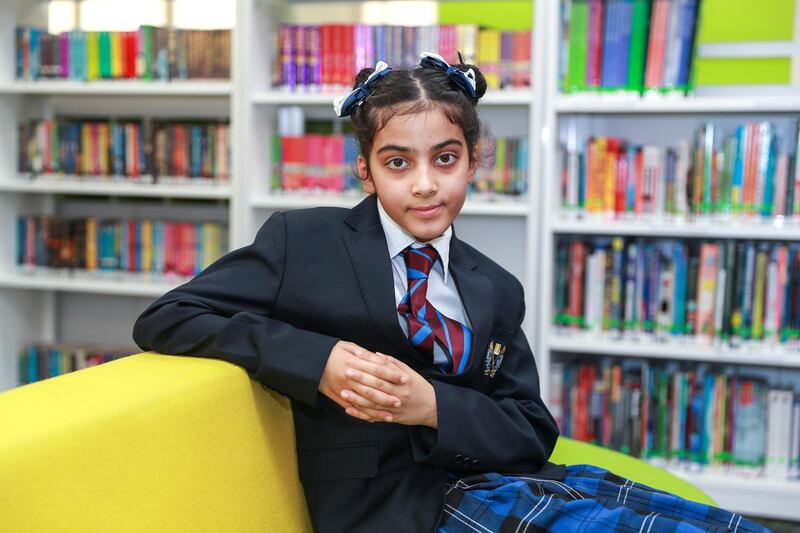Maitha Al Hajaj has always been top of the class when it comes to reading and now she has been picked as one of the top ten UAE finalists for the latest edition of the Arab Reading Challenge.
The Year 6 pupil at Brighton College Abu Dhabi read 50 books in five months and then had to write summaries and reviews.
“I used to finish two stories a day. As soon as I got back from school I started reading and whenever I had free time I just read,” explained the 11-year-old.
“And because I love to read, I decided to try something new and participated in the challenge.”
She was the only pupil from a British curriculum school to qualify as one of the finalists across the UAE. The contestant who ranks number one gets to participate in the final challenge that will gather winners from across the Arab world. Her teachers are confident that she will make it to the final stage.
“No one reads more than her in prep school, from year 3 to 8, and she topped the 'I read Arabic' challenge launched by our school,” said Abeer Barakeh, head of the prep school Arabic language programme at Brighton College Abu Dhabi. The school is participating in the challenge for the second year in a row.
The Arab Reading Challenge was launched by Sheikh Mohammed bin Rashid, Vice President and Ruler of Dubai, in 2016 to encourage students to read in Arabic. It is considered the largest-ever Arabic literacy initiative. It includes pupils from Years 1 to 12 from schools across the Arab world.
____________
Summer Reading Challenge: Could your child read 30 books this summer?
____________
At a time when leaders and officials are putting extra focus on fostering Arabic within young people, Brighton College’s staff have been finding creative ways to revive the language.
“As part of the 'I read Arabic' programme, we have a weekly lesson where the pupils compete to get more stars for their Arabic skills and the one who does, gets to pick an educational game to play with,” explained Ms Barakeh.
“And we have the regular reading lessons, where we give them books and stories that they have to summarise in their notebooks.”
The school has been holding an Arabic language week for the past five years.
“We do activities outside the classroom, like a treasure hunt in the playground, and we do an Arab World challenge in the amphitheatre.
“We also do Arabic calligraphy workshops and invite non-Arabs to have their names written in Arabic.”







